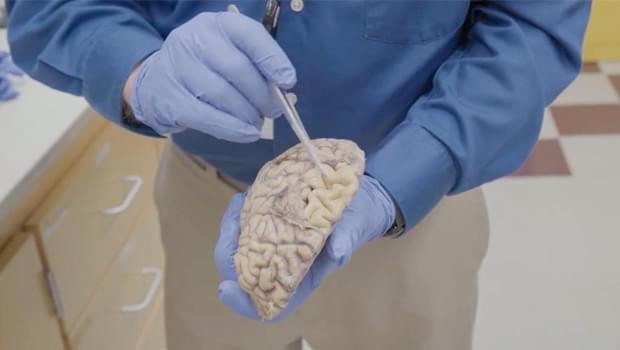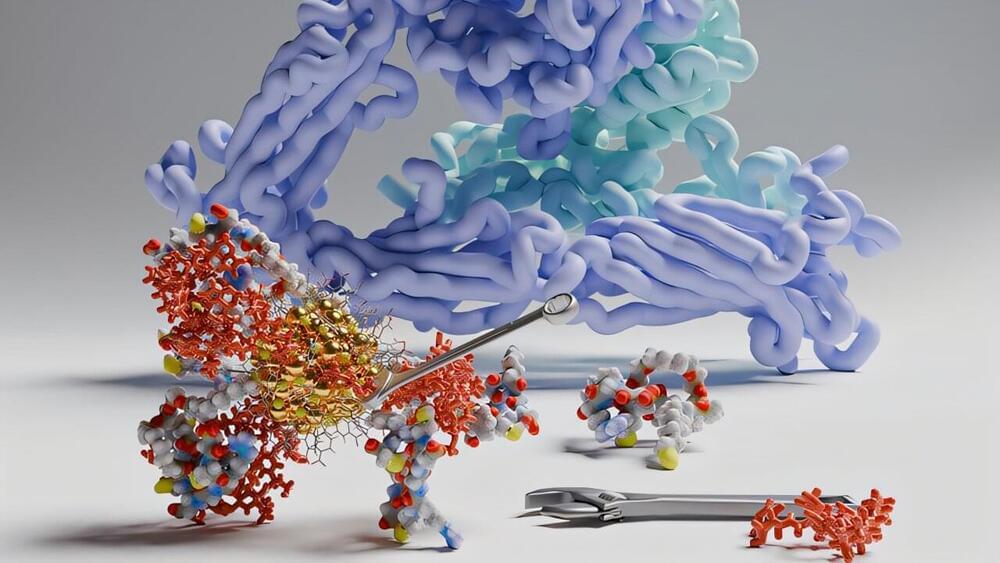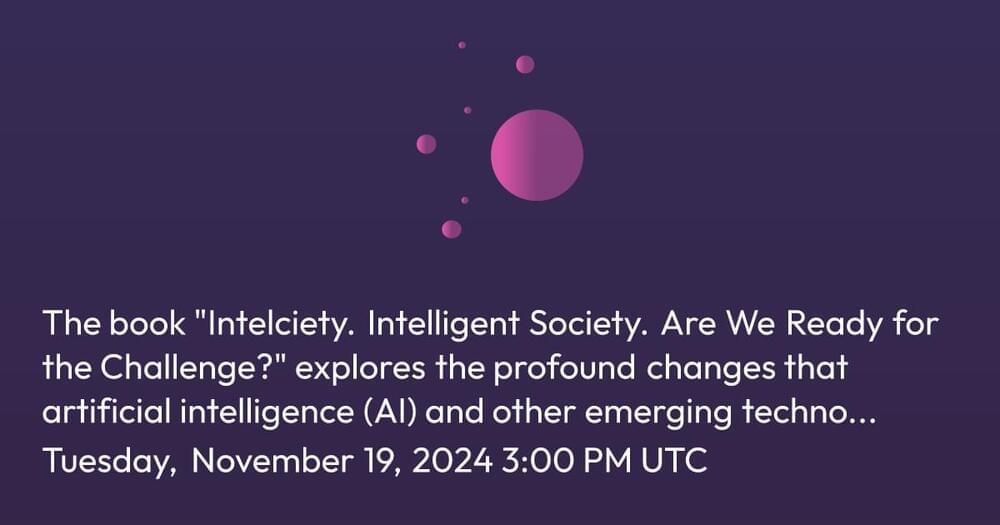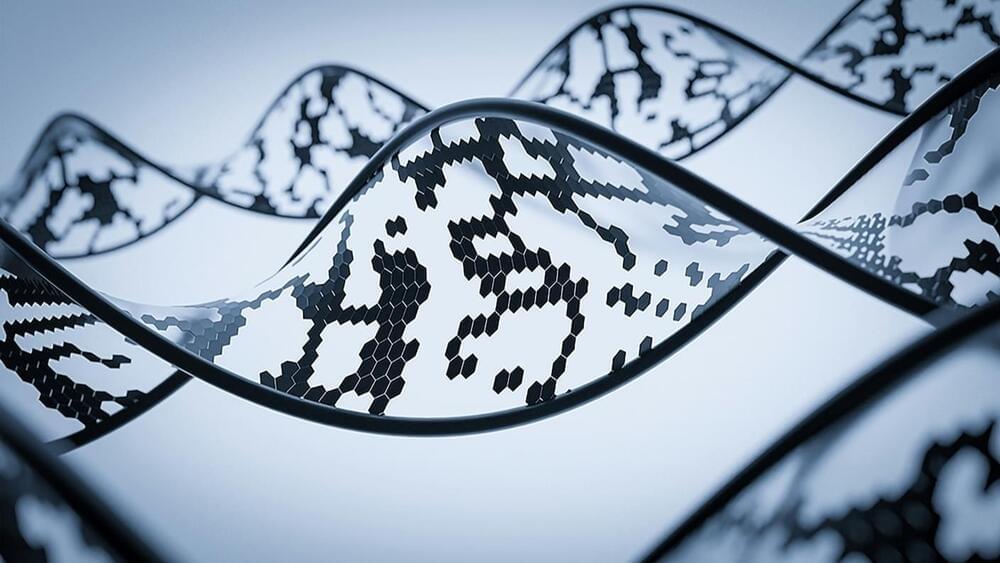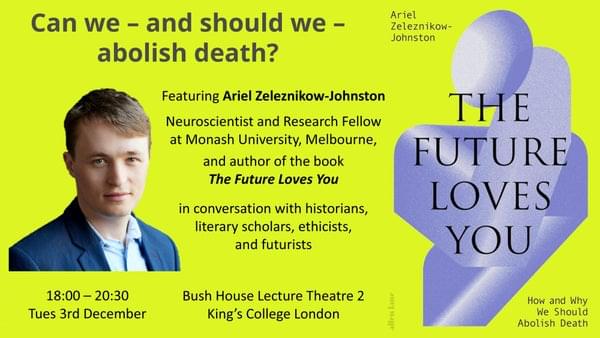Page 26
Nov 18, 2024
ACT Study contributes to understanding Alzheimer’s disease in brain cells
Posted by Cecile G. Tamura in categories: biotech/medical, robotics/AI
Using data and samples from volunteers, including Kaiser Permanente Washington members participating in the Adult Changes in Thought Study (ACT Study), the researchers used advanced genomic technologies and machine learning models to create a timeline of the cellular and molecular changes caused by…
Mapping the disease at the cellular level identifies possible new treatment targets.
Nov 18, 2024
Can we automate science? Sam Rodriques is already doing it
Posted by Shubham Ghosh Roy in categories: robotics/AI, science
People need to anticipate the revolution that’s coming in how humans and AI will collaborate to create discoveries, argues Sam Rodrigues.
Nov 18, 2024
Machine learning and supercomputer simulations predict interactions between gold nanoparticles and blood proteins
Posted by Shubham Ghosh Roy in categories: biotech/medical, chemistry, nanotechnology, robotics/AI, supercomputing
Researchers in the Nanoscience Center at the University of Jyväskylä, Finland, have used machine learning and supercomputer simulations to investigate how tiny gold nanoparticles bind to blood proteins. The studies discovered that favorable nanoparticle-protein interactions can be predicted from machine learning models that are trained from atom-scale molecular dynamics simulations. The new methodology opens ways to simulate the efficacy of gold nanoparticles as targeted drug delivery systems in precision nanomedicine.
Hybrid nanostructures between biomolecules and inorganic nanomaterials constitute a largely unexplored field of research, with the potential for novel applications in bioimaging, biosensing, and nanomedicine. Developing such applications relies critically on understanding the dynamical properties of the nano–bio interface.
Modeling the properties of the nano-bio interface is demanding since the important processes such as electronic charge transfer, chemical reactions or restructuring of the biomolecule surface can take place in a wide range of length and time scales, and the atomistic simulations need to be run in the appropriate aqueous environment.
Nov 18, 2024
The Seductive Promise of Love on Demand | Posthuman with Emily Chang
Posted by Jose Ruben Rodriguez Fuentes in categories: business, finance, robotics/AI

We are now more connected than ever, but also more lonely. Could AI companionship be the cure? In this episode, Emily Chang explores the future tech behind a growing market of relationships-on-demand.
Technology that once seemed like science fiction is rapidly becoming reality, transforming the very essence of our existence. In this four-part series, Emily Chang unravels the future of being human in an age of unprecedented innovation.
Continue reading “The Seductive Promise of Love on Demand | Posthuman with Emily Chang” »
Nov 18, 2024
How Tool Used Math to Create “Lateralus”
Posted by Jose Ruben Rodriguez Fuentes in categories: mathematics, media & arts
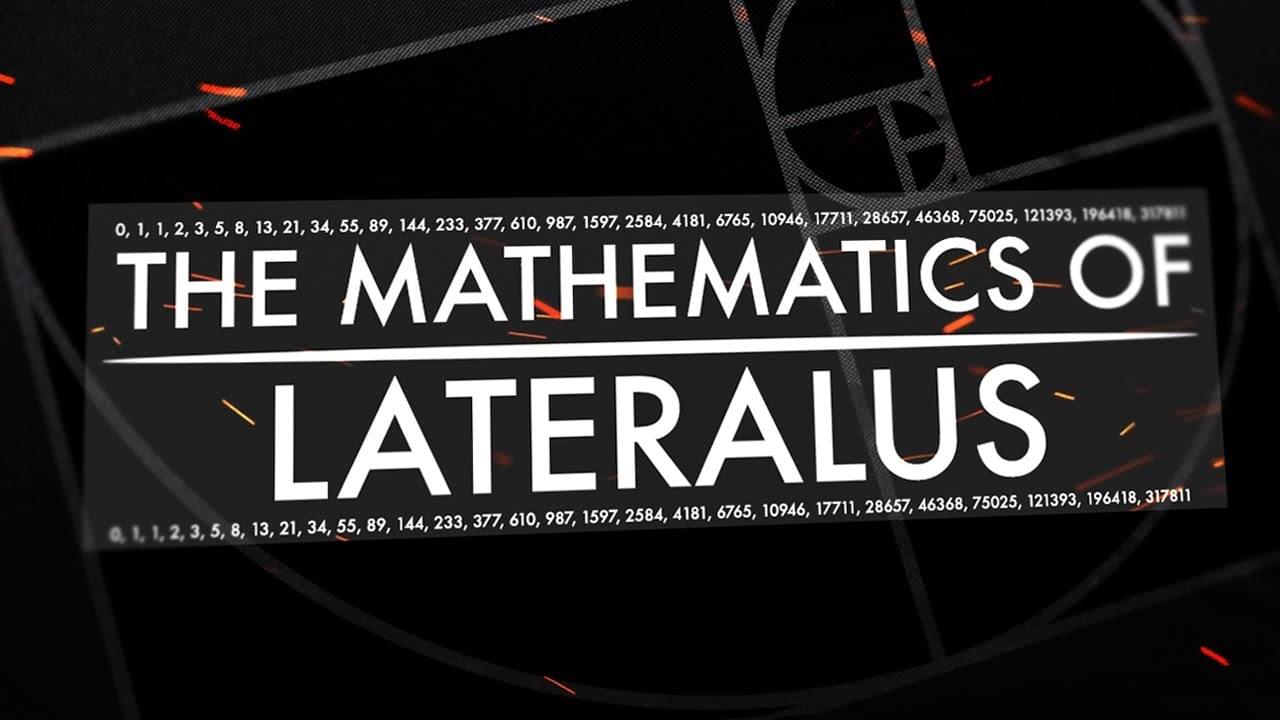
Watch this video ad-free on Nebula: https://nebula.app/videos/polyphonic-how-tool-used-math-to-create-lateralus.
If you think this video was worth $3 — https://ko-fi.com/polyphonic.
Merchandise: https://standard.tv/collections/polyphonic.
TikTok: https://tiktok.com/@watchpolyphonic.
Twitter: https://twitter.com/watchpolyphonic.
Join the Polyphonic Discord: https://discord.gg/TQUTp9r.
Continue reading “How Tool Used Math to Create ‘Lateralus’” »
Nov 18, 2024
Intelciety: Intelligent Society. Are we up for the challenge?. The book “Intelciety. Intelligent Society. Are We Ready for the Challenge?” explores th
Posted by Cecile G. Tamura in categories: biotech/medical, nanotechnology, robotics/AI
Join us at.
#AI #ExponentialTechnologies
The book “Intelciety. Intelligent Society. Are We Ready for the Challenge?” explores the profound changes that artificial intelligence (AI) and other emerging technologies are causing in modern society. Vicente Ferreira da Silva addresses how these technologies are transforming various fields, from medicine and biotechnology to robotics and nanotechnology, and questions whether we are truly prepared to deal with these advances.
Nov 18, 2024
1 Gene May Explain 30 Mysterious Medical Conditions
Posted by Shubham Ghosh Roy in category: biotech/medical
While investigating a rare developmental disorder, researchers ended up discovering a spectrum of conditions that are all linked to one gene.
Nov 18, 2024
A ChatGPT-Like AI Can Now Design Whole New Genomes From Scratch
Posted by Jose Ruben Rodriguez Fuentes in categories: biotech/medical, genetics, internet, robotics/AI
Called Evo, the AI was inspired by the large language models, or LLMs, underlying popular chatbots such as OpenAI’s ChatGPT and Anthropic’s Claude. These models have taken the world by storm for their prowess at generating human-like responses. From simple tasks, such as defining an obtuse word, to summarizing scientific papers or spewing verses fit for a rap battle, LLMs have entered our everyday lives.
If LLMs can master written languages—could they do the same for the language of life?
This month, a team from Stanford University and the Arc Institute put the theory to the test. Rather than training Evo on content scraped from the internet, they trained the AI on nearly three million genomes—amounting to billions of lines of genetic code—from various microbes and bacteria-infecting viruses.
Nov 18, 2024
Can we — and should we — abolish death?
Posted by Shubham Ghosh Roy in categories: futurism, neuroscience
And should we — abolish death? Neuroscientist and author Ariel Zeleznikow-Johnston will be speaking at Bush House, King’s College London, on Tues 3rd December, in an event that London Futurists is happy to draw to the attention of all members and friends.
In this event organised by King’s College London, neuroscientist and author Ariel Zeleznikow-Johnston will be speaking about his new book The Future Loves You, which explores how brain preservation techniques might preserve us forever.
Ariel will be in discussion with historians, literary scholars, ethicists, and futurists, including Richard Ashcroft, Steve Connor, Caitjan Gainty, Catriona Byers, and Fay Bound Alberti.
Continue reading “Can we — and should we — abolish death?” »

